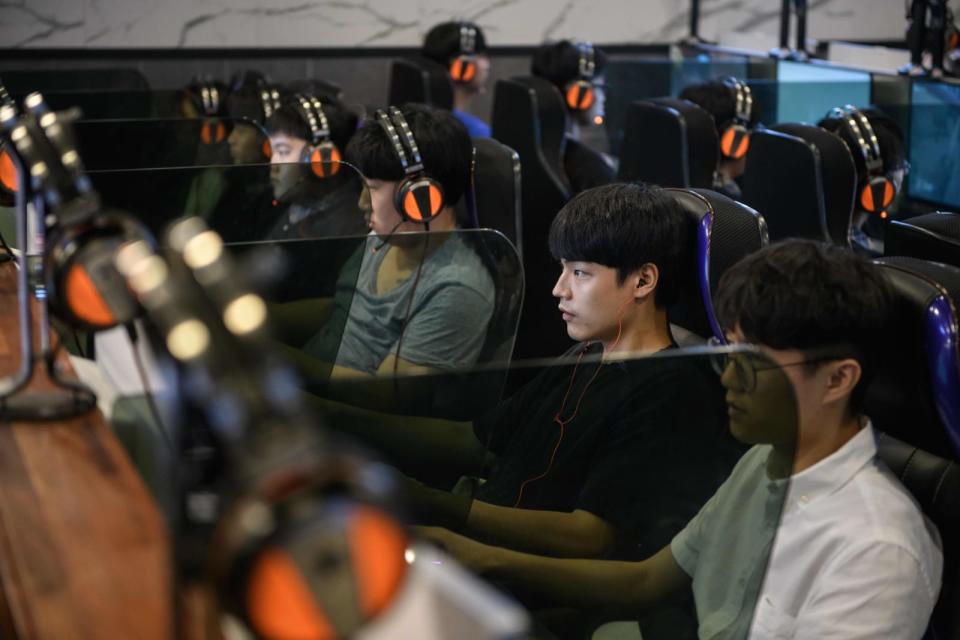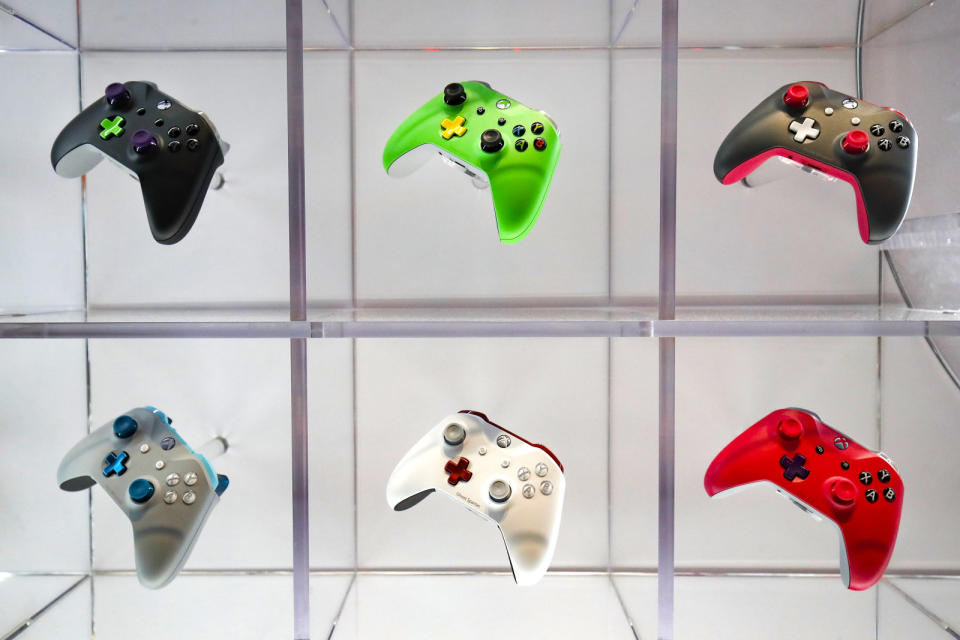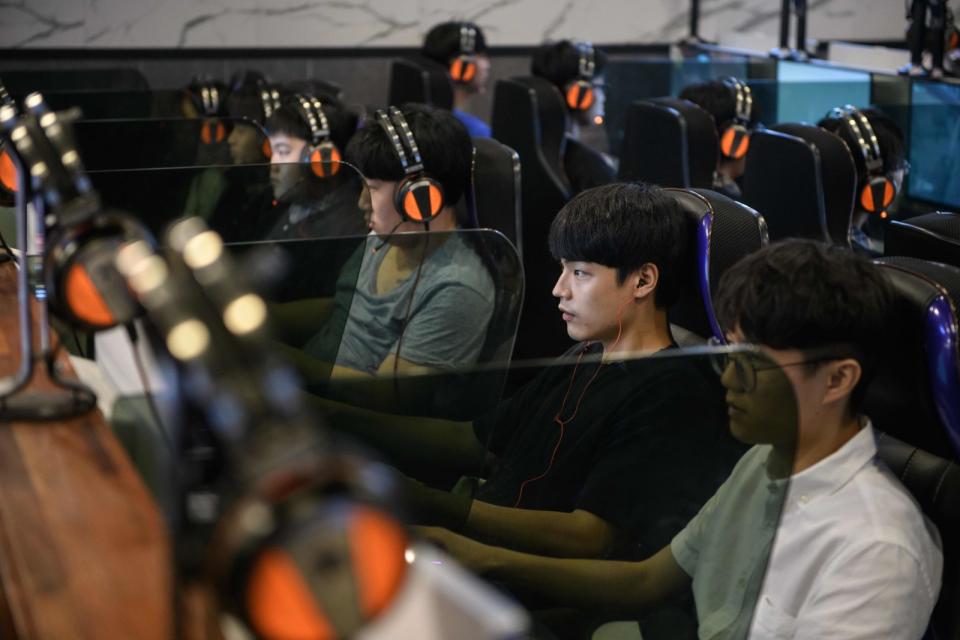With keyboard and mouse support on Xbox, Microsoft closes the gap on PCs
Could the next Xbox do what Steam Machines couldn't?
After years of unfulfilled promises and a few weeks of build-up, the Xbox One family finally supports keyboards and mice. Alright, so it's still a feature reserved for members of the beta-esque Xbox Insider Program and few games actually work with the different control scheme, but it's here nevertheless. Keyboards, mice and consoles aren't an abnormal pairing. I remember playing Unreal Tournament on the Dreamcast with keys and clicks, and the PS4 has supported the alternative peripherals for years, even if developers have largely ignored them. It's a slightly bigger deal on Xbox One, though. After all, it technically runs Windows 10, the OS of choice for PC gamers, albeit with the clunky Xbox UI on top. The line between console and computer, then, becomes ever blurrier.
In the immediate future, the impact of keyboard and mouse support on Xbox One is negligible. Games that work with the control option on day one or within the next few weeks include Bomber Crew, Children of Morta, Deep Rock Galactic, Minion Master, Moonlighter, Strange Brigade, Vigor, War Thunder, Warface, Warframe, Wargroove, Warhammer: Vermintide 2 and X-Morph Defense. I know little to nothing about any of these titles. DayZ on the other hand, I am familiar with, but that's been a dead game for a while now.

Adapters that trick the Xbox One into accepting keyboard and mouse inputs have existed since the console launched, but official support is something different. There's going to be a special Designed for Xbox program for approved peripherals that include an Xbox home button, for instance -- the first product of which is likely to come from well-known gamer brand Razer early next year. More importantly, developers will have to actually consider the control scheme when creating or updating games, rather than simply translating inputs into pad-speak as adapters do.

Five years since the Xbox One launch seems like a long wait for such a feature to be implemented, but it's a touchy subject. Particularly in the first-person shooter world, a keyboard and mouse is considered essential for high-level play. Not only do you have more buttons available for switching between weapons or using abilities but a mouse offers the speed and precision a thumbstick can't match. And yes, I'm aware that some Fortnite pros can build, edit and aim with a pad just as well as their keyboard warrior friends and foes. Aside from these exceptions, though, it's a fact: A keyboard and mouse gives you a competitive advantage over pad players.
If you're Microsoft then, you have to consider alienating players that don't want to spend on additional peripherals. Then there's the further risk of this contingent getting forever stomped every time they jump into an online lobby. This could affect not only morale but the bottom line. Some people could just stop playing games, stop buying games and cancel their Xbox Live subscriptions. There's further complications in that some games are balanced differently across consoles. In popular team-based shooter Overwatch, for example, the turrets some characters can place do less damage on the console versions of the game, making up for the fact they are harder to take out with less accurate aiming on a thumbstick.
Most games are identical across platforms, though, like Fortnite, which is the same game on mobiles, through consoles and all the way up to PCs. It's also by far the highest-profile Xbox One title to support keyboard and mouse control from the offset. Developer Epic Games is preemptively avoiding any complaints of unfair advantages before they occur. Like on PS4, Xbox One players using keys and clicks will be matchmade with each other, leaving pad players to duke it out in their own, controller-specific lobbies. Unfortunately, it won't weed out the punks that use adapters that mimic controller inputs, but these few bad apples have always existed and will continue to.

Aside from the console games we all know and love, official keyboard and mouse support could theoretically open the door to ports of games that live only in the PC realm. Sure, I'm impressed with how tight the controls are on PUBG Mobile, and I don't feel limited playing the MOBA Arena of Valor on the Nintendo Switch. Games that seem like they shouldn't can work on different platforms, but let's not pretend Starcraft II is playable on a pad.
The Xbox One runs a version of Windows 10, and Windows is the gaming OS. I'm no developer, but I don't believe it'd be impossible to lock in a standard graphics setting and port something like a complex real-time strategy over to Xbox One. Of course, this comes with its own problems. If you start launching games made specifically for keyboard and mouse controls, you automatically estrange people without those peripherals.

The Microsoft Store is also hardly a big gaming destination. Between Steam and developer-specific ecosystems like Origin and Battle.net, distribution is all sewn up. Would Microsoft want too big a cut from sales of these Xbox One ports?
That said, the distance between consoles and computers has been shrinking at a rate, particularly within this generation of living-room hardware. Many games these days support crossplay, allowing you to match with friends and randoms despite your platform differences. You can play Fortnite on a PC with a pad, or stream the game from your PS4 or Xbox One to your PC. With the Xbox Play Anywhere program, you buy a game once and can play it on your PC or Xbox, with saves and achievements persisting across platforms. Even mid-generation hardware upgrades like the PS4 Pro and Xbox One X feel geared towards closing the graphical gap between consoles and PCs. And with PSVR, you don't need a proper gaming rig to experience something better than 360-degree videos on your phone.
Keyboard and mouse support on its own seems minor, but it's another small nudge towards making the Xbox One a more viable and appealing PC alternative. In the end, though, it's key that developers actually make use of the new control option. I reached out to a bunch of the big studios to get their thoughts, but they're keeping cards close to chests. Of those that responded, EA said: "As developers, we're excited about crossplay, mouse and keyboard support. We're always researching new ways we can make our games better in the future."

343 Industries, developer of the most recent Halo games, told me: "We're always exploring the best player experiences for Halo and are excited for mouse and keyboard support on Xbox; we don't have any further comments to share." I also asked Microsoft about what it means for the company and Xbox gamers, but the response was basically along the lines of 'it's up to developers now,' shrug. The wait-and-see reaction was expected, but it does feel like we're approaching a natural end-game for Xbox. Microsoft has something Sony doesn't: Windows. And leveraging that could help Microsoft fare better in the console war's next reboot, having lost this round convincingly to Sony.
Being all things to all people isn't necessarily a winning formula, mind. Valve has famously failed to put gaming PCs in the living room with the now legendary but easily forgotten initiative that was Steam Machines. These mini-PCs were built by third parties based on Valve's reference design and ran the Linux-based SteamOS. There was no single box to get behind, and Steam Machines were underpowered compared with Windows counterparts. What's more, the controller that sat in limbo for years didn't end up translating PC controls to pads quite as promised. Combine all this with a lack of developer support, and you get a good idea of why they never took off.
Microsoft is in a slightly different position, of course. It has Windows and the Xbox brand. Perhaps next console generation, they'll encroach even further on the dominion of PCs. And eventually, we won't think about the distinctions at all.













